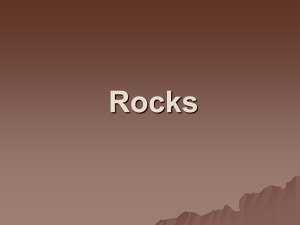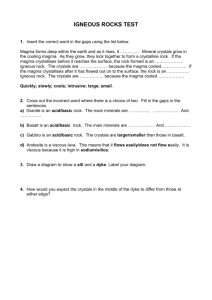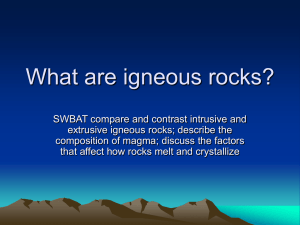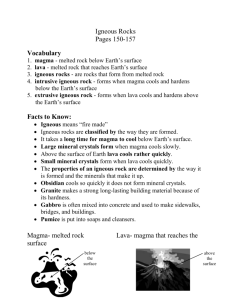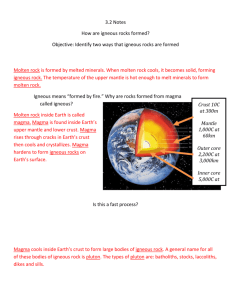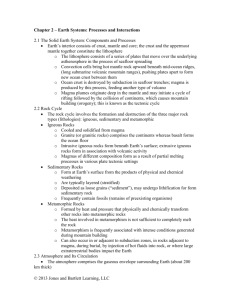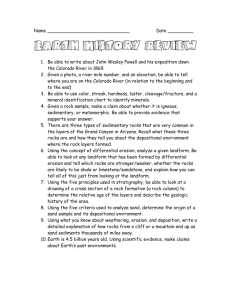CH. 10.2 Intrusive Igneous Activity “What`s a pluton?” Structures that
advertisement
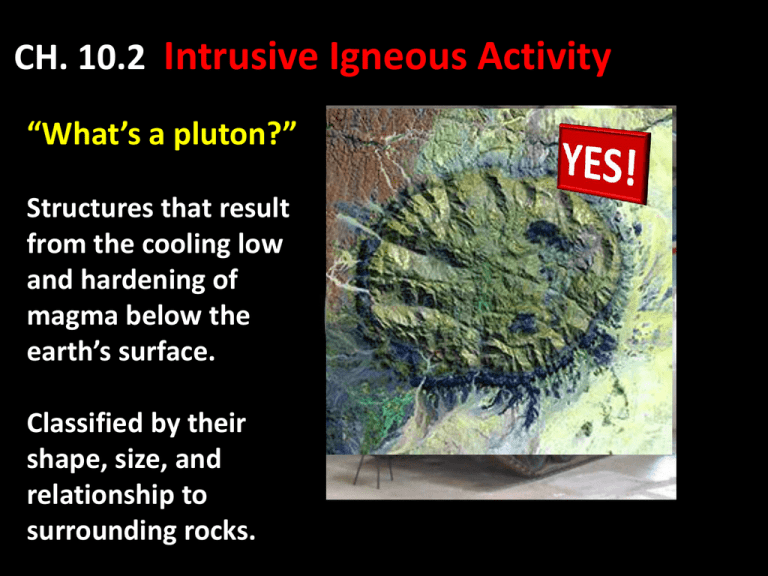
CH. 10.2 Intrusive Igneous Activity “What’s a pluton?” Structures that result from the cooling low and hardening of magma below the earth’s surface. Classified by their shape, size, and relationship to surrounding rocks. Sill = forms when magma is injected along sedimentary rock layers parallel to the layers. Laccolith = forms when magma is injected along sedimentary rock layers parallel to the layers creating a lens-shaped mass that pushes the overlying layer upwards. Dikes = when magma is injected into fractures cutting across pre-existing rock layers. Batholiths = an igneous intrusion that is over 100 km2 in size. Origin of Magma Solid rock located in the crust and upper mantle melts. How does the rock get heated enough to melt? Geothermal Gradient Temperature gets hotter as you go deeper. About 20o C to 30o C per kilometer. This gets the rocks to ALMOST melting………. …… Friction from subduction zones heats the rock the rest of the way. OR …… Crustal rocks heat up as they descend into the mantle. OR …… Hotter mantle rock rise and intrude crustal rock. These processes only make small amounts of magma. Pressure Melting Rocks Can! It’s when the pressure is released that they melt. Remember… Rocks deep in the Earth are solid because of the immense pressure. Wet Melting Pressure and Wet Melting: http://www.fccj.info/gly1001/animations/Chapter9/MagmaMelting.html Plate Tectonics and Igneous Activity In the Zone… Three Zones of Volcanism: • Convergent Plate Boundaries • Ocean-Ocean • Ocean-Continent • Divergent Plate Boundaries • Intraplate Igneous Activity • Hot Spots at Mantle Plumes HOW THE EARTH WORKS pg 298-299 Read pgs 298-299. Answer the Assessment Quesitons on pg 299.




